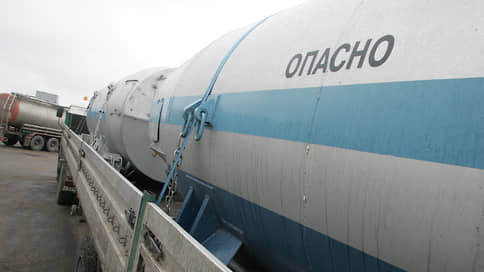Polyethylene is pushed to the stock exchange – Newspaper Kommersant No. 27 (7472) of 02/14/2023
[ad_1]

The government and chemical companies have begun another round of agreeing on the conditions for listing large-tonnage chemicals on the stock exchange. Key issues – the volume of mandatory sales and the range of goods – remain unresolved, and the attitude towards the idea, even within the government, is contradictory. Experts believe that the exchange, although it will cause inconvenience to market participants, can form indicative prices.
As it became known to Kommersant, the Federal Antimonopoly Service has again begun preparations for organizing trading in petrochemical goods on the stock exchange. In early February, the department sent out letters to major consumers asking them to confirm the expediency and interest in purchasing goods at auction included in the draft joint order of the Federal Antimonopoly Service, the Ministry of Energy and the Ministry of Industry and Trade by February 9. In the document they are divided into two groups. The first includes petroleum orthoxylene and toluene, high and low pressure polyethylene, liquid petroleum paraffin, styrene, butyl acetate, vinyl acetate, as well as butyl and isobutyl alcohols. The second group of products includes technical methanol, isopropyl alcohol, polypropylene, polyvinyl chloride and polystyrene.
Attempts to organize exchange trading in petrochemical products have been going on for more than one year, but departments and market participants still cannot agree on both the range of goods and the mandatory volumes of their sales. A year ago, a level of 10% of total production for 30 products was discussed. A similar indicator is included in the roadmap approved on December 23, 2022 for the development of exchange trading for 2023–2025. At the same time, the ministries have a few more months to prepare a joint order – until the fourth quarter of 2023, so Kommersant’s sources on the market are sure that the discussion is just beginning, and the disputes will be fought to the “victory end”.
The largest producers of petrochemicals in the Russian Federation are SIBUR and large oil companies. The interlocutors of Kommersant, close to suppliers of petrochemical products, explain that they consider the idea of exchange trading in such goods difficult and useless, since most of them have a specification for a specific consumer and will not be in demand for free sale, or sale through the exchange will create additional barriers for purchases that are now under direct contracts. According to Kommersant’s sources, the Ministry of Energy adheres to a similar position. The Federal Antimonopoly Service and the Ministry of Industry and Trade support the idea of putting large-tonnage chemicals up for auction. SIBUR and other manufacturers of large-tonnage plastics did not comment on the situation. The Ministry of Industry and Trade noted that so far it is proposed to establish a minimum volume of exchange sales only for polymers, and for other goods (for example, methanol) this is not yet appropriate.
As Kommersant was told in the Union of Plastic Processors, mandatory sales of plastics on the stock exchange will help avoid the imposition of price conditions by manufacturers, some of which are virtually monopolists. They are sure that at least 10% of the production volumes at the first stage should be sold through the system of organized bidding, and in the future this figure should grow to 50%. According to the organization, in 2021-2022, 5.5-6.5 million tons of plastics of the types that are now planned to be listed on the exchange were processed annually in Russia, and the total production in 2021 was 7.7 million tons.
The union considers exchange trading to be the only possible way to form its own market price indicators, which will be used in direct over-the-counter contracts. They also propose to further supplement the list of goods on the exchange with such types of polymers as polyethylene terephthalate, polycarbonate and ABS.
Kommersant’s source in the industry believes that it is possible to create indicators for large-capacity products, but for the most basic brands, which can serve as an indicator when pricing other more customized products, as is done in Europe. But, the interlocutor of Kommersant believes, given the small number of suppliers, there may be distortions in sales on the stock exchange.
Independent expert Leonid Khazanov notes that entering the exchange trades will require additional costs from producers and consumers, and it is not clear whether these costs can be recouped. The advantage of exchange trading will be more transparent pricing.
[ad_2]
Source link





